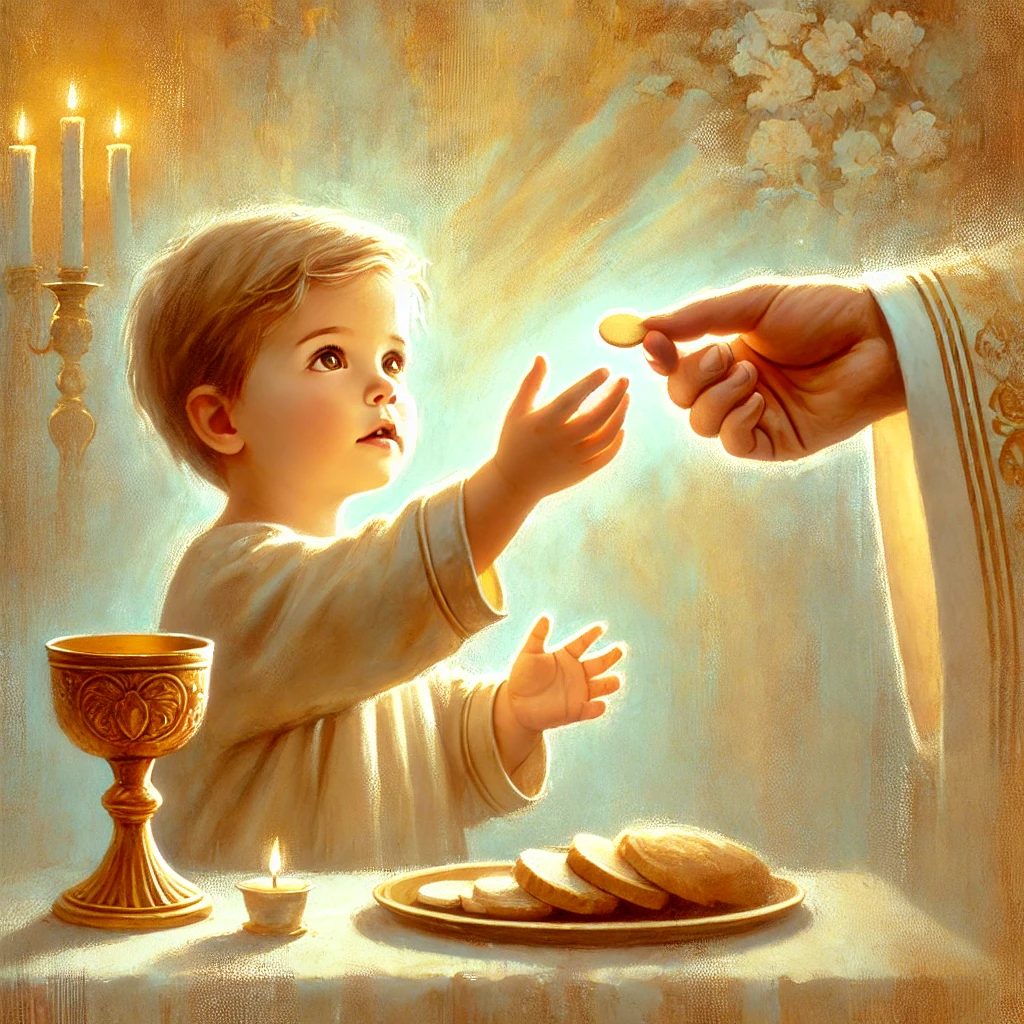Should Children Take Communion?
Introduction
The question of whether children should participate in Communion has been debated within Christian traditions for centuries. Different denominations hold varying perspectives, but all seek to answer this question based on biblical teachings and theological understanding. The Lord’s Supper, instituted by Jesus Christ, is a sacred practice with deep spiritual significance. This article will explore biblical principles, theological considerations, and insights from well-known Christian commentators to determine whether children should partake in Communion.
The Biblical Foundation of Communion
Instituted by Christ
The foundation for the practice of Communion is found in the Gospels, particularly in Luke 22:19-20:
“And he took bread, and when he had given thanks, he broke it and gave it to them, saying, ‘This is my body, which is given for you. Do this in remembrance of me.’ And likewise, the cup after they had eaten, saying, ‘This cup that is poured out for you is the new covenant in my blood.'” (ESV)
This command was given to Jesus’ disciples, indicating that those who partake should understand and remember His sacrifice.
A Practice for Believers
Paul’s writings in 1 Corinthians 11:27-29 emphasize the necessity of self-examination before taking Communion:
“Whoever, therefore, eats the bread or drinks the cup of the Lord in an unworthy manner will be guilty concerning the body and blood of the Lord. Let a person examine himself, then, and so eat of the bread and drink of the cup. For anyone who eats and drinks without discerning the body eats and drinks judgment on himself.”
This passage suggests that Communion requires a level of spiritual maturity to understand its significance and partake worthily.
Theological Considerations
The Importance of Discernment
One of the key theological questions regarding children and Communion is whether they have the capacity to “discern the body” as Paul commands in 1 Corinthians 11:29. Charles Spurgeon comments:
“The Lord’s Supper is not for the unregenerate. It is for those who, having examined themselves, can partake in full knowledge of Christ’s atonement.” (Spurgeon’s Sermons, No. 1557)
If self-examination and discernment are necessary for participation, it suggests that young children, who may not fully understand sin, repentance, and Christ’s sacrifice, should wait until they reach an age where they can comprehend these truths.
Covenant Theology and Paedocommunion
Some Christian traditions, particularly Reformed and Presbyterian churches, view Communion as a continuation of the covenant meal, much like the Passover in the Old Testament. In Exodus 12:24-27, children participated in the Passover and were taught its significance by their parents. Those who support paedocommunion (Communion for children) argue that, just as children partook in the Passover, they should be included in the New Covenant meal of Communion.
However, others argue that the New Testament places greater emphasis on personal faith and conscious remembrance of Christ’s death, which infants and very young children may not yet possess.
The Role of Parents and Church Leadership
Teaching and Discipleship
Proverbs 22:6 states:
“Train up a child in the way he should go; even when he is old he will not depart from it.”
Parents have a responsibility to teach their children about faith, including the meaning of Communion. Many churches encourage a period of instruction, such as a catechism or First Communion classes, before children partake in the Lord’s Supper.
John Calvin emphasized the need for proper instruction:
“The Supper is not for the uninstructed, but for those who know what it signifies and seek to partake in true faith.” (Institutes of the Christian Religion, IV.17.40)
The Age of Accountability
Many Christians believe in the “age of accountability,” the point at which a child is capable of understanding sin, repentance, and personal faith in Jesus Christ. While Scripture does not specify a particular age, many churches use this concept to determine when a child is ready for Communion.
Arguments For and Against Children Taking Communion
Arguments For
Inclusion in the Covenant Community – Just as children were included in Old Testament covenant meals, some believe they should also partake in the New Testament meal of Communion.
Jesus Welcomed Children – Matthew 19:14 states:
“Let the little children come to me and do not hinder them, for to such belongs the kingdom of heaven.” Some argue that preventing children from Communion contradicts Jesus’ welcoming nature.
Early Faith Development – Allowing children to participate may help them grow in their faith by reinforcing Christ’s sacrifice from an early age.
Arguments Against
Need for Discernment – As Paul warns in 1 Corinthians 11:29, those who partake must understand the significance of Christ’s sacrifice, which young children may not fully grasp.
Potential for Ritualism – Without proper understanding, Communion could become a mere ritual rather than an act of faith and remembrance.
Baptism Before Communion – Many traditions teach that baptism should precede Communion as a public declaration of faith, which many children have not yet undergone.
Conclusion
The question of whether children should take Communion is complex and requires careful biblical and theological consideration. Scripture emphasizes the need for faith, discernment, and self-examination before partaking, which suggests that children should wait until they have a personal understanding of Christ’s sacrifice. However, churches and parents play a vital role in preparing children through teaching and discipleship.
Ultimately, each church tradition must prayerfully determine when children are ready to participate in the Lord’s Supper, ensuring that they do so with genuine faith and understanding. As A.W. Tozer once said:
“God is not interested in empty rituals but in hearts that seek Him with understanding and love. Let us come to His table in reverence and truth.”
post comments
Together We Rise: A Campaign for Everyone

